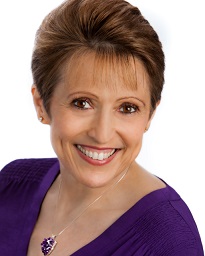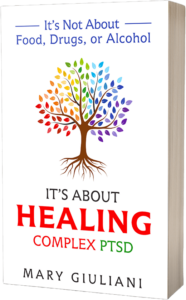Being raised Catholic as well as attending Catholic school from the 4th grade through the 12th grade was the perfect set-up for me to experience some major struggles with guilt and shame. I first started exploring how to heal my guilt & shame issues in the late 80’s through John Bradshaw’s best-selling book Healing The Shame That Binds You.
Although reading Bradshaw’s book was a turning point for me in gaining an understanding what shame and guilt are, and how they develop, he did not mention in this book that to be able to heal shame you needed to resolve guilt first through the process of self-forgiveness.
Through my years of doing a deep dive into studying guilt and shame, I’ve learned which emotions are helpful and which ones are not. I’ve also learned that guilt must be resolved through self-forgiveness before dealing with and resolving shame.
Below are some of the main takeaways on the helpfulness of shame, guilt and self-forgiveness
- Shame is not helpful: Shame is the emotion that is felt when one believes that one’s whole self is bad or flawed and is, therefore, unworthy of acceptance or love. Shame is not helpful since it does nothing to motivate us in a positive direction. It is based on a lie since it is based on a global evaluation of the whole person.
- Guilt is helpful: It is an emotion that is felt when we behave outside of our values. Guilt is very helpful since it alerts us when we are acting outside of our values. It gives us the opportunity to stop, look and listen to where we are out of integrity and motivates us to stop the behavior we feel guilty about and gives us the opportunity to get back on track to honoring our values. However, guilt is only helpful if you have another skill: self-forgiveness
- Prolonged guilt is not helpful: If you have stopped the behavior that you feel guilty over and have not forgiven yourself, then continuing to feel guilt over it means that you feel unforgivable.
- Feeling forgivable is necessary: We must be able to walk through life feeling forgivable. Otherwise, we are defining ourselves as unforgivable. If we define ourselves as unforgivable, we will continually feel shame about who we are.
- To resolve guilt, you must learn and use the skill of self-forgiveness: If you don’t have a method to resolve your guilt, you will feel unforgivable and, therefore, will continue to hold onto your shame. Learning this concept was especially transformational for me since it gave me an understanding of how guilt operates, how unresolved guilt brings on shame, and how to resolve guilt through the process of self-forgiveness.
Additional insights I’ve had on resolving guilt through self-forgiveness
- All humans are imperfect and have and/or will commit acts that hurt themselves or others. Although our perfectionistic society preaches a different opinion on this, the truth is we really are all imperfect and we will all commit acts that hurt ourselves and/or others. This is a natural, normal part of the human condition. When we realize that everybody has done things that they have felt guilty or bad about, it helps us have compassion for ourselves.
- It is important to determine if the behavior or act that you are feeling guilty about is based on whether you are violating your values (authentic guilt) or you are violating someone else’s values (inauthentic guilt). Inauthentic guilt is typically religious, family or culturally based guilt that is not based on your true values but is based on values that you were taught that you must embrace to be considered a “good,” acceptable, lovable or moral person.
- Before I learned that it was ok for me to question the beliefs I was raised with, I automatically felt guilty for things that I had done simply because I was told by an authority (the church, culture, family) that they were wrong. However as I have grown and evolved, I have learned that it is absolutely ok and actually quite healthy to determine what my own beliefs and values are, and it is ok to let go of the values and beliefs I was raised with.
- We can choose to be the authority for our own forgiveness in our life. We can trust ourselves with the authority to forgive ourselves vs. deferring to what we were taught to defer to for forgiveness (e.g. God, the church, a priest or another external authority). Being raised Catholic, I was taught that I had to seek forgiveness outside of myself through confession, a priest, and/or God. Embracing being the authority for my own forgiveness was a major breakthrough for me.
- We can choose a self-forgiveness process based on criteria we believe is fair, compassionate and one that resonates for us. Learning and practicing a self-forgiveness process has been a major breakthrough for me. I was literally astounded how different I felt after I had forgiven myself for things I had been feeling guilty about for years. I am amazed how much lighter I feel, both physically and emotionally. It has been one of the most liberating experiences of my life!
The self-forgiveness process is one of the many tools I provide to help my coaching clients get freed up to live a life they love.
If you would like to know more about how I work with coaching clients visit my coaching page.
Thank you for visiting my blog and reading my post! To read more posts like this visit my blog
With Gratitude,
Mary




